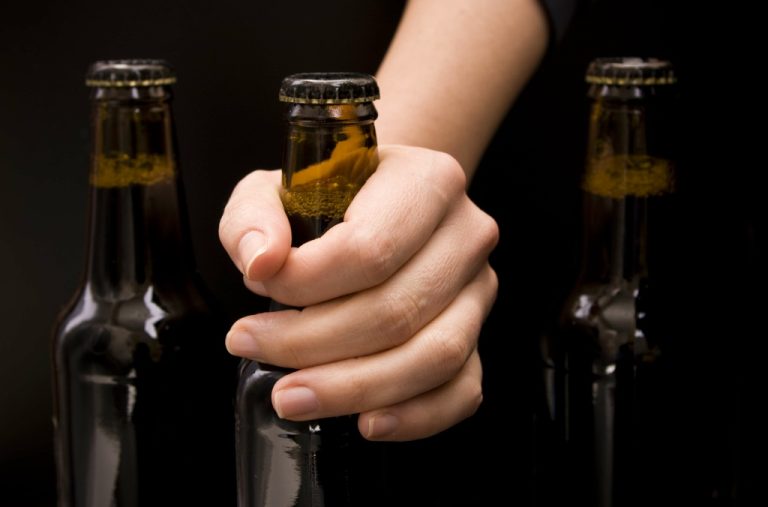Red Wine: Good or Bad?
Think of the wine as a supporting character, not the star of the show. A $10 to $15 bottle should do the trick just fine—unless you’re already planning to open something more splurge-y and want to add a splash to your pan. Instead, pick a wine you won’t be shy about pouring for yourself and your friends. You could also try adding a bag of herbal tea, like hibiscus or mint tea, to your water and letting it sit for 10 minutes to infuse flavor into your drink. I love using a splash of tart cherry juice to add a kick of flavor to my water.
- However, study authors warn that heavy drinkers experienced the opposite effect.
- Those who drink regular, limited amounts of alcohol, including red wine, seem to have a lower risk of heart disease.
- Risk factors for severe dehydration included prolonged diarrhea or vomiting, extreme exercise, laxative use, burns, and certain medical conditions (2).
- The number of calories in wine depends on the type of wine you choose and the serving size.
- White wines, on the other hand, tend to be higher in sugar, which does impact hydration.
There are many potential causes of dehydration, including vomiting, diarrhea, excessive sweating, medication use, and more (2). If your child is showing signs of dehydration, contact their pediatrician for advice. They may suggest that you bring your child to a healthcare facility where they can be appropriately treated and monitored. Although mild to moderate dehydration is common in children who are sick, any kind of dehydration can be extremely dangerous to your child’s health if not treated quickly. Infants and kids are more susceptible to dehydration caused by diarrhea, fever, and vomiting. This is because kids have a higher metabolic rate and lose more water on a daily basis than adults do (25).
How might alcohol help the heart?
The CDC states that an average of 1 in 6 American adults binge drink. Binge drinking is defined as consuming four or more drinks on an occasion for women and five or more for men. Many drinkers, especially those who drink heavily, which is defined as eight or more alcoholic drinks in a week in women and 15 or more in men, underreport their alcohol consumption. While some studies have shown the health benefits https://ecosoberhouse.com/ of drinking red wine, you should weigh the benefits against the risks and keep in mind the dangers of alcohol abuse. The review also points out that it may not be the alcohol itself, but rather components of the red wine, like polyphenols (health-promoting chemicals in foods) that confer the benefits. This distinction between red wine and other alcoholic beverages was further confirmed in a 2022 study.
- Binge drinking is when a person consumes an excessive amount of alcohol within a short period of time.
- Chemicals that form in our bodies from drinking alcohol damage our DNA.
- But contrary to popular belief, alcohol may actually cause blood sugar levels to go down instead of up.
- So what can you do to make sure you don’t get that infamous hangover headache caused by dehydration?
- It’s important to respond promptly by increasing water intake, and if the symptoms are severe or persist, seeking medical attention is advisable.
- Chronic heavy drinking can result in high blood pressure, which is a leading cause of kidney disease.
The scientists believe that the ethanol in wine plays a crucial role in metabolizing glucose and that the nonalcoholic ingredients may also contribute. These include resveratrol, catechin, epicatechin and proanthocyanidins (5). Red wine is made by crushing and fermenting dark-colored, whole grapes.
Special Health Reports
People who currently have liver disease should avoid alcohol altogether. The authors stated that this might be because of the neuroprotective effects of polyphenols and other compounds in wine that can reduce inflammation and alter the does red wine dehydrate you lipid profile in the body. However, these effects are from resveratrol rather than red wine itself. However, the research is limited, and doctors need more evidence before understanding the true effects of red wine on gut health.
What Alcohol Does To Your Face & Skin + How To Deal, From Derms mindbodygreen – mindbodygreen
What Alcohol Does To Your Face & Skin + How To Deal, From Derms mindbodygreen.
Posted: Sat, 25 Feb 2023 08:00:00 GMT [source]
They were also the only group to experience a significant drop in components of metabolic syndrome. People who drank either red or white wine also reported better sleep quality than the group that drank water, and the researchers found no significant adverse effects with any group. Too much can be destructive to your health, raising your blood pressure and your risk of developing several kinds of cancer. Too little may hold you back from some of the benefits that moderate drinkers enjoy, like lower incidence of cardiovascular disease, mortality and type-2 diabetes.

